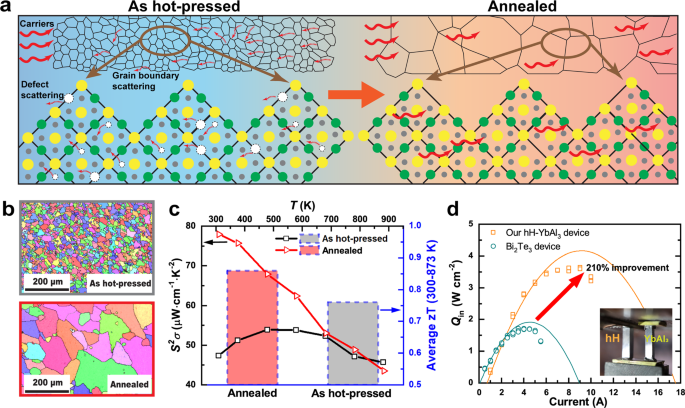2023-07-13 ノースカロライナ州立大学(NCState)
 CRISPR-modified wood shows red coloration (l) alongside wild-type poplar wood (r). Photo courtesy of Chenmin Yang, NC State University.
CRISPR-modified wood shows red coloration (l) alongside wild-type poplar wood (r). Photo courtesy of Chenmin Yang, NC State University.
◆研究チームは、予測モデリングを使用して目標を設定し、CRISPRを使って遺伝子を編集することで、木の特性を改善しました。これにより、リグニンの含有量が減少し、炭水化物対リグニン比やシリンジル対グアイアシル比が増加しました。今後は、野外での試験を行い、遺伝子編集された木が外部環境でどのように機能するかを評価する予定です。
<関連情報>
- https://news.ncsu.edu/2023/07/crispr-poplar-tree/
- https://www.science.org/doi/10.1126/science.add4514
持続可能な繊維生産のための木材のマルチプレックスCRISPR編集 Multiplex CRISPR editing of wood for sustainable fiber production
Daniel B. Sulis,Xiao Jiang,Chenmin Yang,Barbara M. Marques,Megan L. Matthews,Zachary Miller,Kai Lan,Carlos Cofre-Vega,Baoguang Liu,Runkun Sun,Henry Sederoff,Ryan G. Bing,Xiaoyan Sun,Cranos M. Williams,Hasan Jameel,Richard Phillips ,Hou-min Chang,Ilona Peszlen ,Yung-Yun Huang ,Wei Li ,Robert M. Kelly ,Ronald R. Sederoff,Vincent L. Chiang,Rodolphe Barrangou,Jack P. Wang
Science Published:13 Jul 2023
DOI:https://doi.org/10.1126/science.add4514
Editor’s summary
Trees provide an important natural resource, but breeding for optimal wood properties is time consuming and hindered by the complexity of tree genetics and diversity. Sulis et al. show that CRISPR technologies can be readily deployed to enhance wood properties and augment the sustainability of forest trees (see the Perspective by Zuin Zeidler). The authors generated multiplexed genetic alterations modifying wood composition in poplar with more desirable traits for fiber pulping and lower carbon emissions. This work demonstrates that genome editing can be harnessed for breeding more efficient trees, which will provide timely opportunities for sustainable forestry and a more efficient bioeconomy. —DJ
Abstract
The domestication of forest trees for a more sustainable fiber bioeconomy has long been hindered by the complexity and plasticity of lignin, a biopolymer in wood that is recalcitrant to chemical and enzymatic degradation. Here, we show that multiplex CRISPR editing enables precise woody feedstock design for combinatorial improvement of lignin composition and wood properties. By assessing every possible combination of 69,123 multigenic editing strategies for 21 lignin biosynthesis genes, we deduced seven different genome editing strategies targeting the concurrent alteration of up to six genes and produced 174 edited poplar variants. CRISPR editing increased the wood carbohydrate-to-lignin ratio up to 228% that of wild type, leading to more-efficient fiber pulping. The edited wood alleviates a major fiber-production bottleneck regardless of changes in tree growth rate and could bring unprecedented operational efficiencies, bioeconomic opportunities, and environmental benefits.



